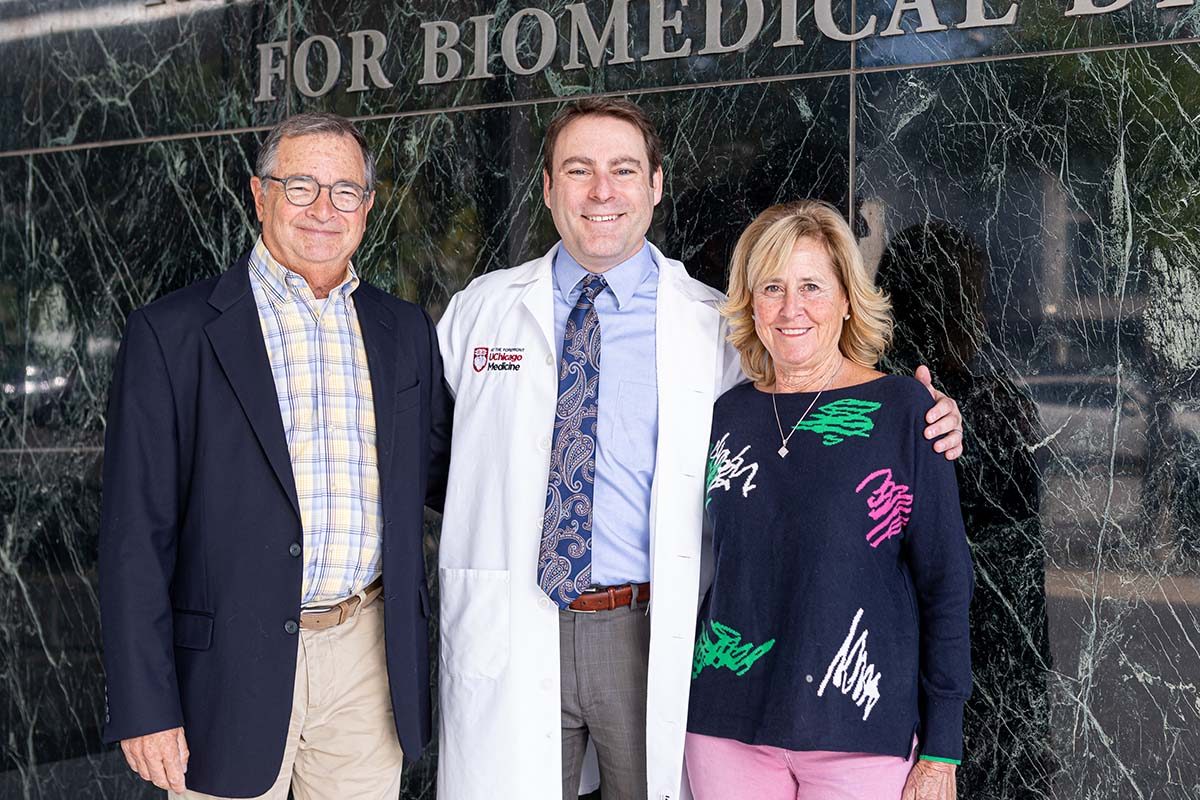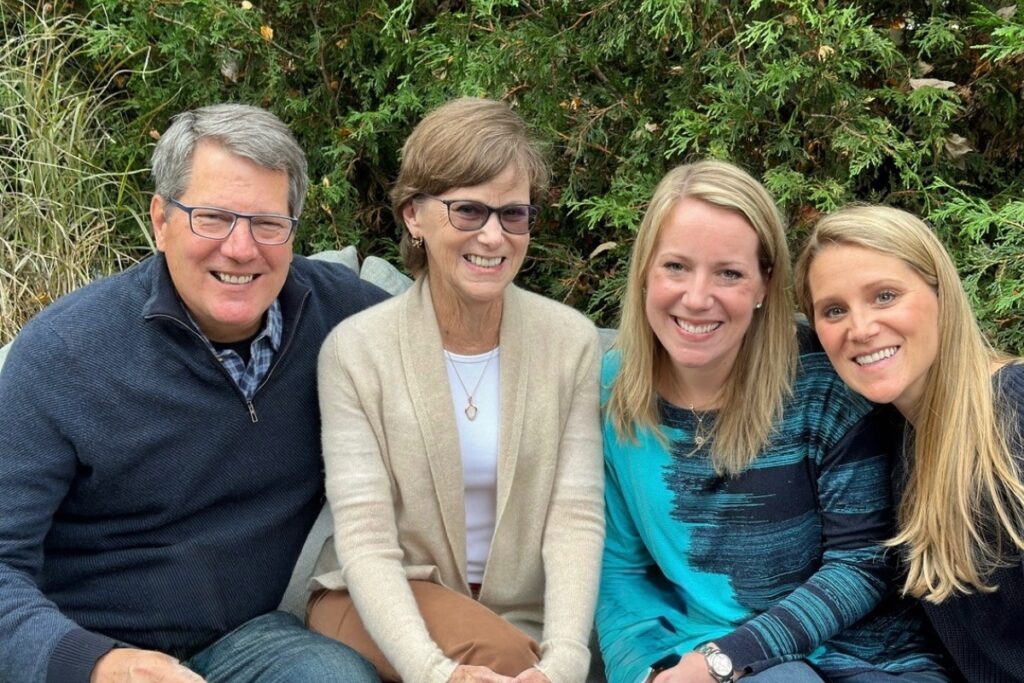Curt Rodin’s health journey began 12 years ago with a diagnosis of prostate cancer and subsequent robotic surgery at the University of Chicago Medicine. His type of prostate cancer had a higher risk of recurrence, and two years later, the disease returned. After radiation therapy also failed to cure the cancer, Rodin was referred to UChicago Medicine oncologist Russell Szmulewitz, MD, an expert in treating advanced prostate cancer.
During his long career as a personal injury attorney, Rodin has known many physicians whose testimony was scientifically precise, but difficult for jurors to interpret. In Szmulewitz, he found an excellent doctor with great communication skills. “His gift is that he gives you enough knowledge to make informed decisions,” Rodin said.
Skills Rodin honed as a lawyer served him well as he navigated his own medical case. He knew what to ask, what to read and how to choose the right physicians.
His advice to others facing a similar challenge: “Find the right doctors who will educate and give you all the options — the pros and the cons — and who have the humility to say they don’t have all the answers, which is why research is so important.”
UChicago Medicine has one of the most active clinical research programs across the spectrum of prostate cancer disease states, from screening and active surveillance to novel treatments for advanced disease, “We pride ourselves on having a leading-edge clinical research option for patients, no matter where they are on the spectrum of prostate cancer illness,” Szmulewitz said.
A robust research program requires resources beyond federal funding. Curt and his wife, Linda, have long been supporters of Szmulewitz’s research. Most recently, the Rodins provided a transformative gift to support research led by Szmulewitz that aims to unravel the mechanisms of therapy-resistant prostate cancers. And, because there are many types of prostate cancer, the Szmulewitz lab is working to precisely define each in order to develop highly targeted, personalized treatments that can effectively eliminate disease.
To better understand the diversity of prostate cancers, the Szmulewitz lab is building a biobank of patients’ tumor samples, including those of African American men, who, despite having a higher risk of developing aggressive prostate cancer and dying from it, are underrepresented in prostate cancer research. The biobank provides the essential material for developing and testing targeted treatments to eliminate this disparity as well as to improve outcomes for all men with the disease.
In addition to banking samples for research, the Rodins’ gift will allow Szmulewitz and his team to work with state-of-the-art technology to manipulate and grow live tumor samples from patients in the lab. This will create a one-of-a-kind resource to enable countless future research opportunities.
Social justice is a priority for the Rodins, who established a social justice center at Curt’s law school alma mater to expand access to legal services for the underserved. Their support of prostate cancer research will have a similar equalizing effect.
“We hope our gift will benefit many men,” Curt said. “It’s our way of paying back. I have always believed we all owe a little rent for the space we occupy.”




